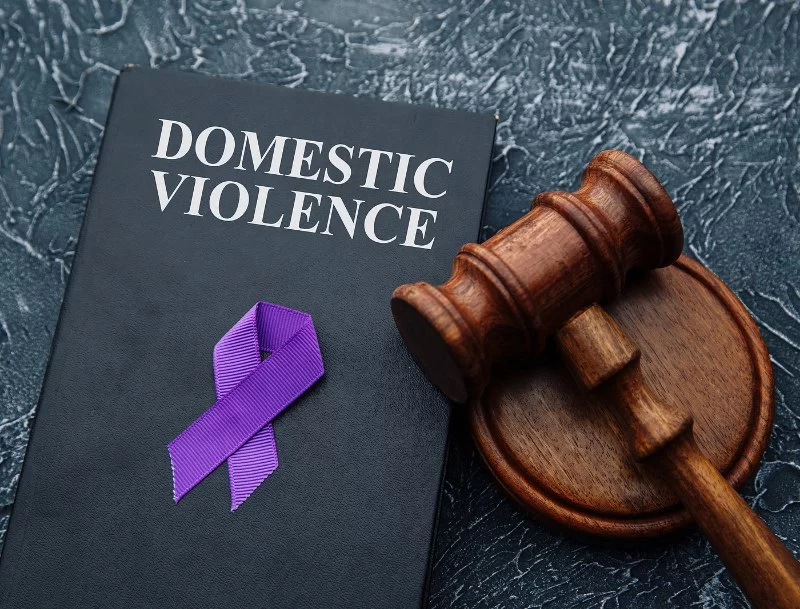- legal-rights-of-domestic-violence-victims
- 1-understanding-domestic-violence-and-the-law
- 2-protective-orders-and-restraining-orders
- 3-housing-and-employment-protections
- 4-real-life-case-and-legal-outcomes
- 5-getting-legal-support-with-central-texas-employment-lawyers
Legal Rights of Domestic Violence Victims
When a person experiences domestic violence, the trauma goes far beyond physical harm—it touches every part of life, from personal security to employment and housing. Thankfully, the law provides protections for domestic violence victims, offering both immediate safety and long-term solutions. Knowing your legal rights is a crucial step in reclaiming control and ensuring justice. This article explores the comprehensive legal options available to domestic violence victims and how expert support can make all the difference.
1. Understanding Domestic Violence and the Law
Domestic violence is more than just physical abuse. It includes emotional manipulation, economic control, digital surveillance, and threats of harm. Legal systems in the U.S. recognize a wide range of abusive behaviors, and legal rights are designed to reflect that complexity.
1.1 Federal and State Legal Frameworks
Victims are protected under both federal and state laws. The Violence Against Women Act (VAWA) has expanded support for victims, offering grants for legal aid and access to services, while individual states provide additional protections such as emergency restraining orders and criminal charges against abusers.
1.2 Who Qualifies for Legal Protection?
Legal protection isn't limited to married couples. Unmarried partners, individuals in same-sex relationships, and those living in shared households can all access protective laws. Whether you’re a spouse, dating partner, roommate, or family member, the law is on your side.
2. Protective Orders and Restraining Orders
One of the first legal actions a victim can take is to seek a protective order, often known as a restraining order. This legally mandates the abuser to stay away from the victim and can provide peace of mind in a turbulent situation.
2.1 Temporary vs. Permanent Orders
Emergency protective orders can often be issued within hours of reporting abuse, without the abuser present. Later, the court may issue a longer-term order after a formal hearing. These orders can include restrictions on contact, physical proximity, and even custody of children.
2.2 Violations and Legal Recourse
If an abuser violates a protective order, they can face criminal penalties including fines and jail time. Victims should report violations immediately and document all evidence, which can strengthen any subsequent legal actions.
3. Housing and Employment Protections
Domestic violence victims often fear losing their homes or jobs if they come forward. Thankfully, several laws protect victims from discrimination or retaliation.
3.1 Safe Housing Rights
In many states, domestic violence victims can legally break a lease without penalty if they need to flee an unsafe environment. Some housing programs offer priority placement for abuse survivors, and landlords are prohibited from evicting tenants solely because they are victims.
3.2 Workplace Rights and Leave
Under laws like the Family and Medical Leave Act (FMLA), some victims may be entitled to time off for medical treatment or court appearances without losing their job. Additionally, several states have laws that require employers to provide unpaid leave or prohibit workplace discrimination against abuse survivors.
4. Real-Life Case and Legal Outcomes
Consider the story of Mia, a single mother from Texas who suffered emotional and physical abuse from her partner. After obtaining a protective order with legal help, she was also able to break her apartment lease and move to a shelter. When her employer learned of her situation, she was unfairly terminated. Fortunately, she partnered with legal professionals who helped her file a wrongful termination claim—and win.
4.1 Why Legal Representation Matters
Mia's outcome wasn't just luck—it was a result of understanding her rights and having proper representation. Without legal support, many victims are left vulnerable to further harm and injustice. That’s why seeking expert legal advice is not just helpful—it’s essential.
5. Getting Legal Support with Central Texas Employment Lawyers
For victims navigating the complex legal landscape of domestic violence, specialized legal help can be life-changing. Central Texas Employment Lawyers offers compassionate, experienced support to help you assert your rights—whether that means securing a protective order, pursuing legal action for discrimination, or navigating employment challenges.
5.1 Comprehensive Legal Services
The team at Central Texas Employment Lawyers understands the urgency and sensitivity involved in domestic violence cases. Their services cover everything from court representation and employment disputes to housing law and benefits counseling. You’re not alone in this fight, and legal options are always available.
5.2 Your Next Step
If you or someone you know is experiencing domestic violence, it’s time to explore your rights. Reach out to Central Texas Employment Lawyers for a consultation and take the first step toward safety, justice, and a new beginning.




